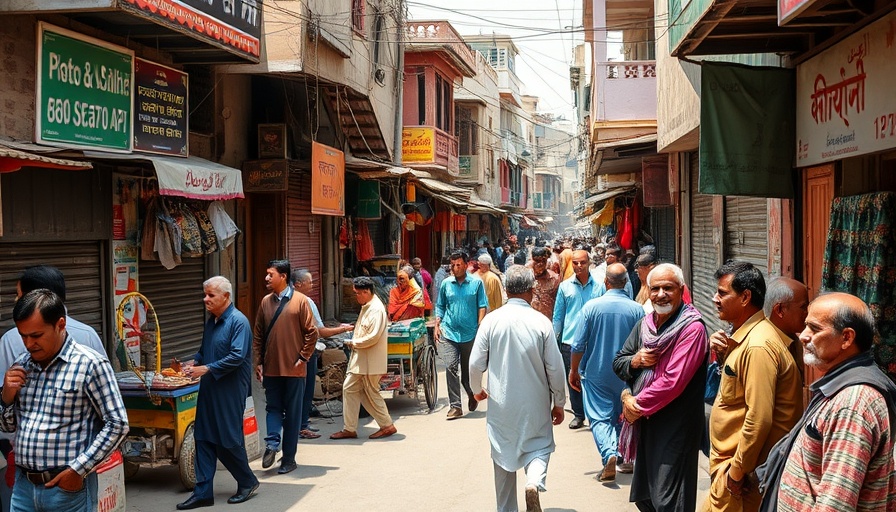
The Unfolding Crisis: Blasphemy Laws in Pakistan
In Pakistan, the landscape for religious minorities, particularly Christians, has become increasingly perilous due to blasphemy laws that have long been a source of fear and oppression. Recently, there was a flicker of hope when Justice Ishaq Khan ordered an investigation into these laws following revelations of their misuse, outlined in a damning report titled “The Blasphemy Business.” This report exposed the alarming practices of criminal networks that falsely accuse individuals of blasphemy, exploiting financial gain from desperate families.
Understanding the Backlash Against Justice
Despite initial optimism, the investigation has been halted after significant backlash from radical elements within Pakistan’s political and religious landscape. Members of the Tehreek-e-Labbaik Pakistan party united to publicly denounce the investigation as a direct threat to their beliefs, leading to protests and legal challenges. This situation sheds light on how power dynamics within the country can swiftly stifle justice, demonstrating a pattern where any scrutiny of blasphemy laws typically meets fierce opposition, often incited by radical groups.
Why Blasphemy Laws Matter
Blasphemy laws in Pakistan are not just a legal issue; they serve as tools for oppression. These laws, which ideally should protect religious sentiments, are often weaponized to target the most vulnerable—a reflection of societal hierarchies that prioritize religious conformity over human rights. For Christians and other minorities, accusations can lead to violent reprisals, wrongful imprisonments, and loss of life, creating an environment of constant fear and trauma.
Historical Context: A Pattern of Abuse
Historically, religious minorities in Pakistan have faced systemic discrimination, where accusations of blasphemy can result in mob violence or extrajudicial killings. The current situation echoes past instances where attempts at reform were swiftly crushed, as illustrated by the experience of Asia Bibi, a Christian woman who was on death row for years before being acquitted. The harsh realities faced by individuals like her paint a grim picture of the societal implications of the country's legislative framework.
A Call for Compassionate Action
As the news breaks about the suspension of the investigation, it is crucial for international audiences, humanitarian advocates, and especially Christian communities to unite in advocacy. Engaging with this issue goes beyond mere awareness; it demands a compassionate response aimed at fostering dialogue and promoting policy reforms that protect the rights of all citizens. While the battle for justice may seem daunting, progress often begins with collective action, informed prayer, and standing in solidarity with the oppressed.
Faith-Based Perspectives on Persecution
For mission-minded individuals and humanitarian-focused Christians, understanding the struggles of the persecuted church is vital. The challenges faced by Christians in Pakistan are a stark reminder of the global plight for religious freedom. It invites individuals to rethink their position in this narrative—considering how they can contribute to a supportive environment both locally and internationally.
Conclusion: The Path Ahead
While the recent suspension of the blasphemy investigation in Pakistan represents a significant setback for justice, it also underscores the urgent need for increased awareness and advocacy efforts. It is increasingly clear that the fight against misuse of blasphemy laws cannot be won merely through legal means; it requires a moral and spiritual awakening within the Pakistani society itself, alongside robust international pressure.
Now, more than ever, we encourage believers and advocates to continue praying for scrutiny of these laws, to compel the authorities toward a long-overdue investigation and potential reform. Your voice matters. In solidarity with our brothers and sisters enduring this struggle, let us advocate for change and justice.
 Add Row
Add Row  Add
Add 








Write A Comment